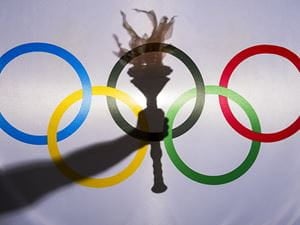
The modern Olympic Games or Olympics are the leading international sporting event featuring summer and winter sports competitions in which thousands of athletes around the world compete for Gold and to claim dominance in their competitive sport. The Olympic Games are also considered to be the world’s foremost sports competition with more than 200 nations participating. While millions of people tune into Olympic coverage when the Games are held, there are a number of facts about the history of the Olympics that many people don’t know. As the Olympics approach us, let’s take a look at some amazing facts and traditions that make up part of this celebrated global event:
The First Olympics and The Game’s Evolution
The first Olympics started in ancient Greece from the 8th century B.C. to the 4th century A.D. They were dedicated to the Olympian gods and were staged on the ancient plains of Olympia. The Games were closely linked to the religious festivals of the cult of Zeus. The games continued nearly 12 centuries until Emperor Theodosius decreed in 393 A.D. that all such “pagan cults” be banned. The Games were resurrected in the late 19th century with the help of Baron Pierre de Coubertin who founded the International Olympic Committee (IOC) in 1894. During this period, only men were allowed to take part in the Olympic Games. Women first took part in the Games in Paris in 1900, four years after the first Olympic Games of the modern era in Athens. There were 22 women out of 997 athletes who competed in just five sports: tennis, sailing, croquet, equestrian and golf. Female participation has increased over the years with women accounting for more than 44 percent of the participants today. Other major adjustments have taken place over the years including the creation of the Winter Olympic Games for ice and winter sports, the Paralympic Games for athletes with disabilities and the Youth Olympic Games for teenage athletes.
The Ancient Greeks Competed Nude
The first Olympic Games celebrated nudity. Yes, that’s right – ancient Olympic sportsmen ran, wrestled and fought completely naked. Many people don’t know that the word gymnasium comes from the Greek word gymos, which means naked. All athletes kept a pottery flask of oil to rub over his body before training or public competition. They did this not only for looks, but also to pay tribute to the gods. The ancient Greek athletes also worked out in the nude.
The Olympic Flame
In the first Olympic Games in ancient Greece, a flame was ignited by the sun and kept burning until the closing of the game. The flame represented a number of things including purity and the endeavor for protection. In 1936, Carl Diem, the chief organizer of the 1936 Olympic Summer Games suggested what is now the modern Olympic torch relay, where a torch is passed from runner to runner and placed in the stadium of the hosting city. The flame continues to burn until the Games have concluded. The Olympic torch relay represents a continuation from the ancient Olympic Games to the modern Olympic Games.
There Is an Olympic Creed
Did you know the Olympics have a creed? The Olympic Creed reads: “The most important thing in the Olympic Games is not to win but to take part, just as the most important thing in life is not the triumph, but the struggle. The essential thing is not to conquer but to have fought well.” Pierre de Coubertin, the International Olympic Committee founder got the idea for the phrase from a speech given by Bishop Ethelbert Talbot at a service for Olympic champions during the 1908 Olympic Games and it has stuck around ever since.
Gold Medals Aren’t Pure Gold
Retired Olympic wrestler Dan Gable once said, “Gold medals aren’t really made of gold. They’re made of sweat, determination, and a hard-to-find alloy called guts.” Well, there’s more truth to that than just his last sentence. While many people believe that when an athlete wins the ‘gold’ they are winning a solid gold medal, the truth is they aren’t. In fact, medals haven’t been made out of pure gold for around 100 years. Today, the gold medals that athletes receive are silver, with gold plating.
The First Olympic Broadcast
The 1936 Berlin Olympics, recognized as the ‘Nazi’ Olympics by many, were the first Olympic Games to ever be televised. Prior to this evolution, sports fans had to listen to radio commentary and prior to that, had to read about the events in the newspaper. Can you believe that? At the time, there were no global television broadcasts. These were not made possible until the ‘60s. Today, giant screens and HD televisions are where the games are primarily broadcast. We’ve come a long way since the first Olympic broadcast, haven’t we?
The Youngest Olympic Athlete
The youngest Olympic athlete was a Greek gymnast by the name of Dimitrios Loundras who competed at the 1896 Summer Olympics in Athens. He was a member of the Ethnikos Gymnastikos Syllogos team and placed third of the three teams in the event, giving him a bronze medal. At 10 years 218 days he still remains the youngest medalist and competitor in Olympic history. Later in life, he became an admiral of the Greek Navy.
The Oldest Olympian
Swedish shooting expert Oscar Swahn won his first Olympic medal in 1908 when he was 60 years old. When the 1912 Summer Olympics came around to his native country, he was a member of the single shot running deer team which again won the gold medal. He also won bronze again at the individual double shot running deer event. After WWI, he competed in his last Olympics in the Antwerp Games and won a silver medal. At the time, he was 72. In total, he competed at three Olympic Games and won six medals, including three gold.
The Olympic Games have transformed so much since their start in ancient Greece but the goal has remained the same – to compete for pride, fame and Olympic glory. Enjoy these fun facts about the history of the Olympics and share them with others!

